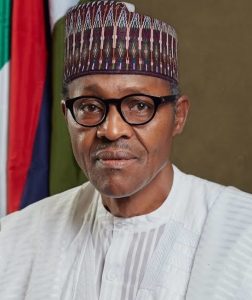
Association of Bureaux De Change Operators of Nigeria (ABCON) has called on the Central Bank of Nigeria (CBN) to remove restrictive controls that make it difficult for Bureaux De Change (BDCs) to compete for the $20 billion inflow in the unofficial forex market.
Meanwhile, the Association has lamented the rising import bill of the country and called on the Federal Government to deploy measures to tackle the challenge, given its grave implication for the naira exchange rate.
The Association stated this in its Quarterly Economic Review Report for the fourth quarter of 2021 (Q4’21), noting that the stoppage of dollar sales to BDCs by the CBN has triggered a period of reformation and realisation of potential.
These potential, ABCON noted, include the estimated $20 billion yearly inflow in the unofficial forex market, which far exceeded the yearly dollar cash sales to BDCs by the CBN.
Another potential for BDCs, ABCON added, is the gap created by the stoppage of FX funding of BDCs by CBN, adding that the gap is obvious as many medium and small scale users of foreign exchange for imports have experienced untold hardship in processing form ‘M’ in deposit banks.
“These and more opportunities are open to the BDC sub-sector to research and evolve operational strategies and techniques without recourse to funding from CBN”, ABCON stated.
The Association, however, called on the CBN to withdraw all restrictive controls, which may hinder the ingenuity of the BDCs and thus their ability to explore the potential highlighted.
On the other hand, ABCON called on the FG to tackle the factors driving the rising trend in the nation’s import bill, which it noted, heightens pressure on the external reserves and the naira.
It stated: “Data from Nigeria Bureau of Statistics, show that Nigeria’s import bill rose by 51.1 per cent year-on-year to N8.15 trillion in Q3 2021. For as long as imports are increasing without matching equivalents in exports or foreign exchange inflows, the currency must depreciate.
“By principle, a depreciated currency makes exports of a country cheaper in the international market thereby increasing inflow of foreign exchange but unfortunately for Nigeria, the sectors where it has comparative advantage to excel is grossly traumatised by terrorism and insurgency due to lack of will power of government to control the situation.
“The serious consequences of the continuous trade deficit are that it also affected the country’s balance of payment account, thereby causing more pressure on the exchange rate.
“Inflation-linked devaluations, which often seemingly lead to higher rates of inflation in the absence of sound domestic policies, are damaging. Government should allow economic reasoning to outplay political tendencies which in the long run may lead the economy into catastrophic consequences.”







